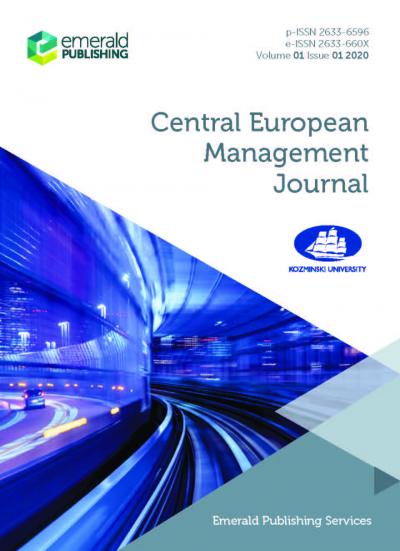International Startups from Poland: Born Global or Born Regional?
Marek Maciejewski
Cracow University of Economics
Krzysztof Wach
Cracow University of Economics
2019 27 (1) Central European Management Journal
DOI 10.7206/jmba.ce.2450-7814.247








